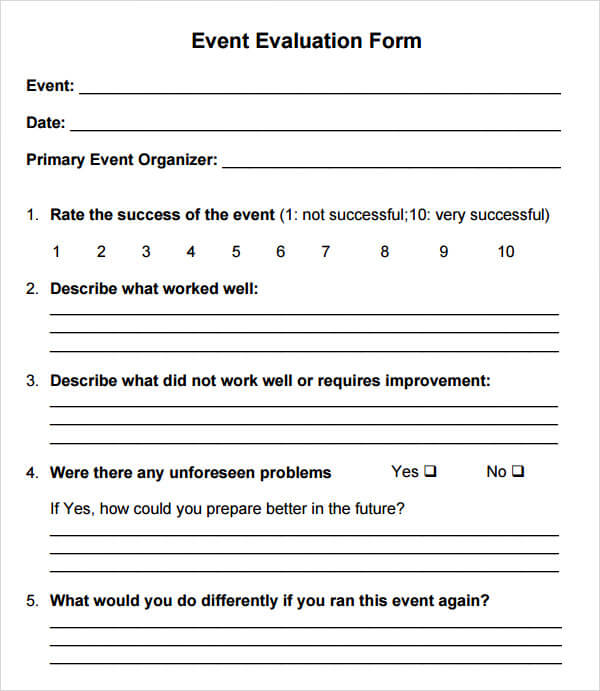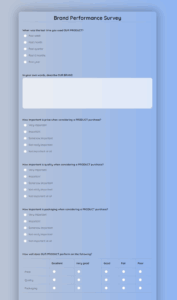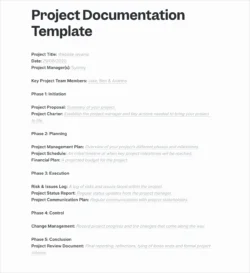Organizing a corporate event, whether it is a grand conference, an intimate workshop, or a celebratory gala, requires meticulous planning and execution. But the true measure of its success often lies in the feedback you receive from your attendees. How else can you truly gauge what worked, what resonated, and what could be improved for next time? Gathering insightful opinions is not just about ticking a box; it is about genuinely understanding your audience’s experience and making data-driven decisions that elevate future gatherings.

This is where a well-designed survey template for a corporate event becomes your secret weapon. Instead of starting from scratch every time, a robust template provides a consistent framework, ensuring you cover all essential aspects of the event experience. It streamlines the feedback collection process, making it easier for attendees to share their thoughts and for you to analyze the results efficiently. Let us dive into crafting and utilizing such a valuable tool.
Crafting the Perfect Survey: Essential Elements of a Corporate Event Feedback Form
Creating an effective feedback survey is more art than science, but with the right structure, you can capture incredibly valuable insights. The goal is to ask the right questions in a way that encourages honest and detailed responses, without overwhelming your attendees. Think about the entire journey your attendees took, from registration to post-event follow-up, and segment your questions accordingly. This systematic approach ensures no critical detail is overlooked.
A good survey starts with clarity and brevity. People are busy, so your survey should be easy to understand and quick to complete. Mix question types, from multiple-choice and rating scales to open-ended questions that allow for more qualitative feedback. This blend provides both quantifiable data and rich, descriptive insights that can pinpoint specific areas for improvement or highlight successful elements.
Consider breaking down your survey into logical sections. This makes it less daunting for the respondent and helps you categorize feedback for analysis. Here are some key areas you should definitely include:
Pre-Event Logistics and Communication
- How easy was the registration process?
- Were the pre-event communications (e.g., agenda, venue details) clear and timely?
- Did you receive all the information you needed before the event?
Event Content and Quality
- How relevant were the sessions and presentations to your interests/job role?
- What was the quality of the speakers/presenters?
- Were there enough opportunities for networking and interaction?
- Did the event meet your learning objectives?
Venue and Logistics On-Site
- How would you rate the venue (comfort, accessibility, amenities)?
- Were the food and beverage options satisfactory?
- Was the event staff helpful and courteous?
Overall Experience and Future Events
- How likely are you to recommend this event to a colleague?
- What was the most valuable aspect of the event?
- What areas, if any, could be improved for future events?
- Are there any specific topics or speakers you would like to see at future events?
By structuring your questions thoughtfully, you create a comprehensive feedback mechanism that truly reflects the attendee experience.
Maximizing Your Feedback: Best Practices for Distributing and Analyzing Your Survey
Once you have meticulously crafted your survey template for a corporate event, the next crucial step is ensuring it reaches your audience and that you effectively process the gathered data. A perfectly designed survey is only useful if it is completed and its insights are acted upon. Timing and method of distribution play a significant role in response rates, so planning this phase is just as important as the question development itself.
The ideal time to send out your survey is immediately following the event, ideally within 24 hours. The experience is still fresh in attendees’ minds, leading to more accurate and detailed recall. Waiting too long risks lower response rates as people move on to other tasks and their memories of the event fade. Consider multiple distribution channels to maximize reach:
- **Email:** The most common method. Send a direct email with a clear call to action and a link to your survey.
- **QR Codes:** Place QR codes on event signage, badges, or program guides. Attendees can scan them on the spot.
- **Dedicated Survey Platforms:** Utilize tools like SurveyMonkey, Typeform, or Google Forms, which offer user-friendly interfaces and analytics.
- **Post-Event Follow-up:** Include the survey link in your thank-you email or post-event resources.
To encourage participation, keep the survey concise and estimate the completion time. Inform attendees about how their feedback will be used to improve future events, emphasizing that their input genuinely matters. Offering a small incentive, such as entry into a prize draw, can also significantly boost response rates, but ensure it aligns with your event’s professionalism.
After collecting the responses, the real work begins: analysis. Do not just skim the data; dive deep. Look for patterns, recurring themes in open-ended responses, and significant deviations in ratings. Use the data to identify strengths to replicate and weaknesses to address. Create a summary report highlighting key takeaways and actionable recommendations. This insightful report can then inform decisions for your next corporate gathering, turning every event into a valuable learning experience.
The insights gleaned from attendee feedback are invaluable assets that fuel continuous improvement. Each completed survey, particularly those structured using a comprehensive survey template for a corporate event, provides a deeper understanding of what truly matters to your audience. This understanding empowers you to fine-tune every aspect of your future gatherings, ensuring they are not just well-organized, but genuinely impactful and memorable.
By committing to a robust feedback process, you are investing in the long-term success of your corporate events. It fosters a culture of responsiveness and excellence, demonstrating to your attendees that their voice is heard and valued. Ultimately, well-analyzed feedback transforms good events into truly exceptional experiences that resonate, build stronger relationships, and consistently achieve their objectives.



